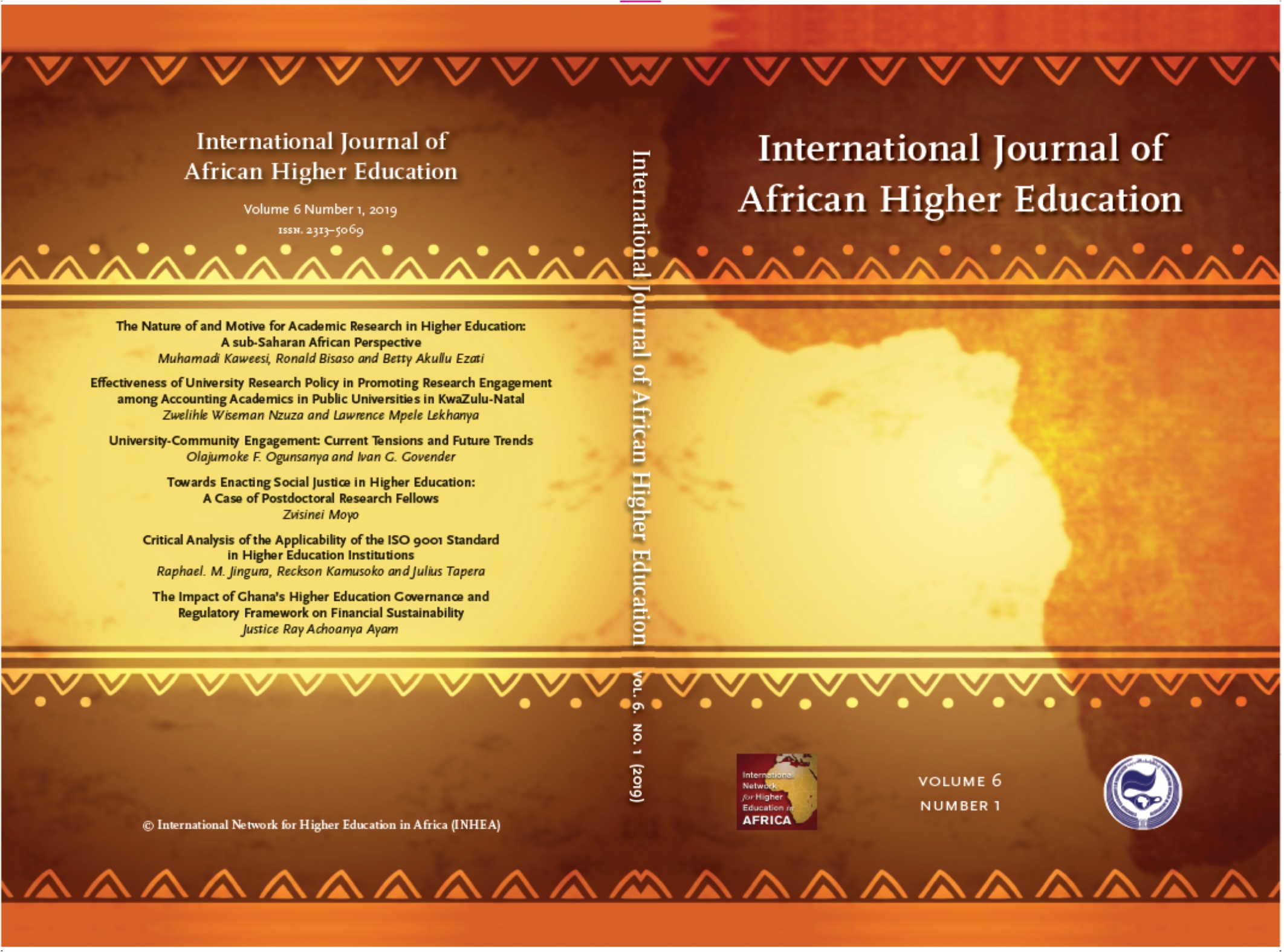The Nature of and Motive for Academic Research in Higher Education: a sub-Saharan African Perspective
DOI:
https://doi.org/10.6017/ijahe.v6i1.10577Abstract
The production of knowledge that is diverse in nature has gained importance in research-led universities. However, the nature of scientific knowledge and researchers’ motives of producing such knowledge across disciplinary fields in research-led Sub-Saharan African universities are not yet known. This study set out to access the voices of lead researchers regarding the nature and motive of academic research in Uganda’s research-led flagship institution-Makerere University. Findings showed that despite the pervasiveness of theoretical/basic research across disciplinary fields, other research orientations are evident as well. Although emphasis is placed on publishing in top-ranked journals, there is production of commercially-biased, policy-relevant and community-oriented research. Due to research funding constraints, the donor-driven research orientation has also become popular. We therefore conclude that although majority of lead researchers engage in basic research, the nature of academic research is varied and lead researchers’ motives of engaging in research are diverse. Because of the dominance basic and donor-driven research, we recommend that there is need to rethink the University promotional assessment model, diversify research funding sources, and selectively collaborate with the donors.
Key words: Knowledge production, research-led university, research orientation
Downloads
Published
How to Cite
Issue
Section
License
Copyright (c) 2020 Muhamadi Kaweesi

This work is licensed under a Creative Commons Attribution-NonCommercial-NoDerivatives 4.0 International License.

